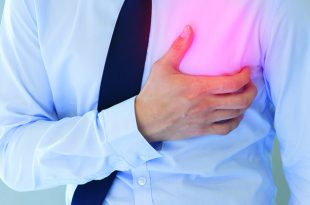We all know the risk factors for Coronary Heart disorders, like high cholesterol, high blood pressure, smoking, a poor diet, diabetes, stress and aging. But, did you know that there is a post holiday heart attack correlation? For years medical researchers have been aware of the unfortunate uptake in coronary failure during the holidays and into the New Year.
There have been speculations of the cold weather causing an issue. For example, when the weather cools down the blood vessels tighten and constrict. This raises the blood pressure. Therefore, that’s why many people often experience an attack after shoveling snow, but what about here in Florida? Researchers understand that even in warmer climates, people still suffer heart attacks around the holidays. In fact, no matter what the weather may be outside, one of the highest rates of heart failure occurs on New Year’s day.
Post Holiday Heart Attack Risks Factors
There is no doubt that we are busier than ever during and after the holiday season. With parties, gift shopping, community events and family gatherings, are stress levels are quite often through the roof. Emotional stress is a huge factor in blood pressure spikes. Along with anxiety, we often times overindulge during this time of year. For example, we’re eating too much, eating the wrong foods, like excessively salty and fatty fare, or we’re drinking too much alcohol. When we eat too much it can raise our cholesterol levels and when we drink too much alcohol, it can cause ventricular fibrillation. Ventricular fibrillation causes rapid, electrical, stimulations in your heart and you may experience a dangerously high heart rate.
Atherosclerosis is the hardening of the arteries due to a buildup of plaque caused by high cholesterol in the blood. When those particles of plaque break away, they can cause coronary arrest. The post holiday season and activities, along with higher than normal cholesterol levels, can disrupt this preexisting plaque, making patients more susceptible to heart attacks and arrhythmias.
During this time of year, people are often times less likely to exercise regularly, because of their abnormally busy schedules. This can have a greater effect on someone with a current heart condition. It’s imperative to keep yourself healthy during this time of year, through exercise, eating right, managing stress and warding of viruses like the flu. The flu and other upper respiratory disorders play a huge role in putting undue stress on the heart. For the aging population, this is especially true. Getting a flu shot and upping the antioxidants in the winter are critical.
Many people ignore the symptoms of a heart attack during this time of year. This may be one of the main reasons that coronary disease thrives in these winter months. People may feel chest pains or experience shortness of breath, but put it off, because they are too busy, or too drained to consult with their physician.
Heart Attack Symptoms
- Chest Pain and tightness
- Lightheaded
- Dizzy
- Tired/Fatigue
- Shortness of breath
- Anxiety
- Rapid heart rate
- Sweating
- Gray color to skin
- Arm/Shoulder pain
- Abnormal heart palpitations
This information is for educational purposes only and is not intended to replace the advice of your doctor or health care provider. We encourage you to discuss with your doctor any questions or concerns you may have.
*********************************************************************
At Cardiac Care Group, they take your symptoms seriously and are prepared to see you and to discuss your conditions. They specialize in providing a wide range of services that focus on the prevention, prompt diagnosis and state-of-the-art treatment of cardiovascular disease.
Joseph Freedman, M.D.
Dr. Freedman brings many years of experience as a cutting edge cardiologist specializing in the prevention, diagnosis, and treatment of all cardiac disease. He trained at the prestigious Cleveland Clinic, continually ranked #1 in Cardiovascular Care, where he focused on cardiac imaging. He achieved five board certifications in Internal Medicine, Cardiology, Comprehensive Adult ECHO, Nuclear Cardiology and Cardiac CT. During his tenure as the lead noninvasive cardiologist at Florida Medical Center in Ft. Lauderdale, he helped lead the hospital to achieve Level 5 chest pain certification, the highest designation of cardiac excellence.
He has spoken on national health care radio programs and has appeared on local news, highlighting the latest in cardiovascular care. Dr. Freedman prides himself on being an advocate for the patient. Every patient is unique, and he works carefully with leading local and national experts to make sure patients receive the best specialty procedural care possible for that specific case. Dr. Freedman has done research in cardiac MRI studies of the heart, in nuclear scanning, and has participated in the research trials of several leading cholesterol lowering drugs. Dr. Freedman also has extensive experience in pulmonary hypertension, and ran a large clinic in Broward County for these specific and often undiagnosed patients. Dr. Freedman speaks Spanish as well.
3208 Chiquita Blvd S
Suite 110
Cape Coral, FL 33914
(239) 574-8463



